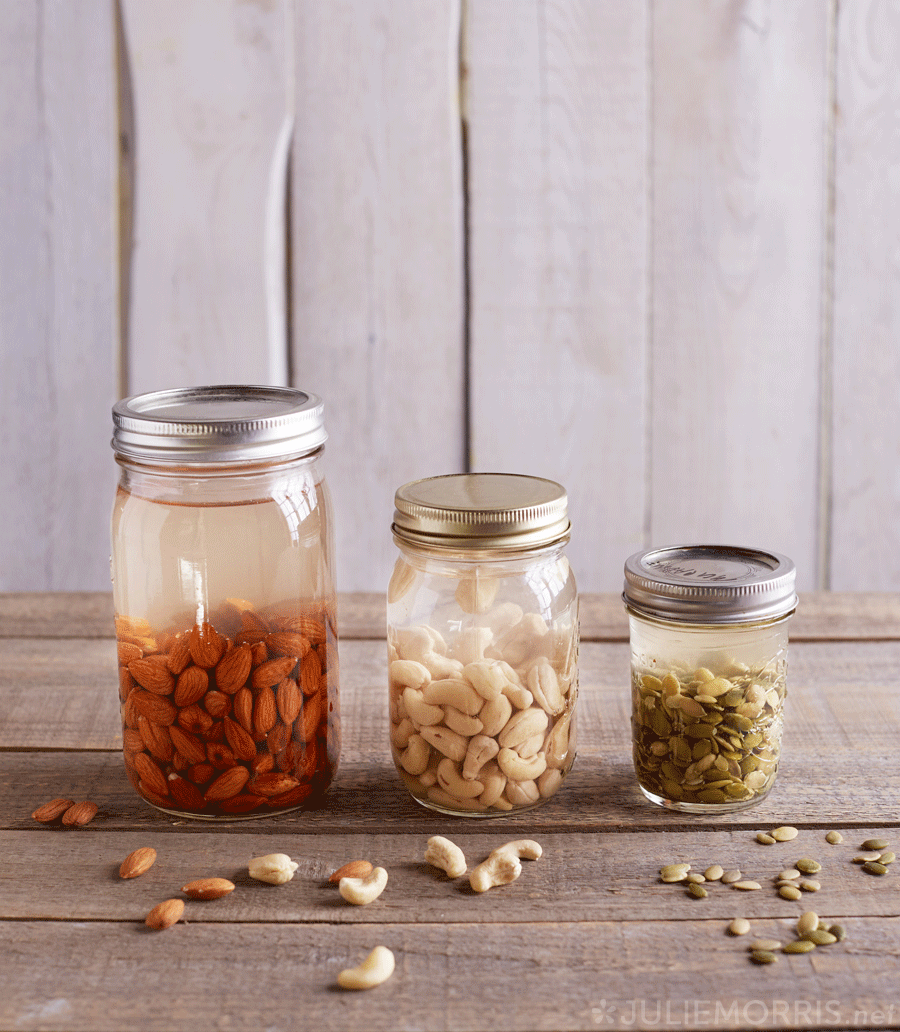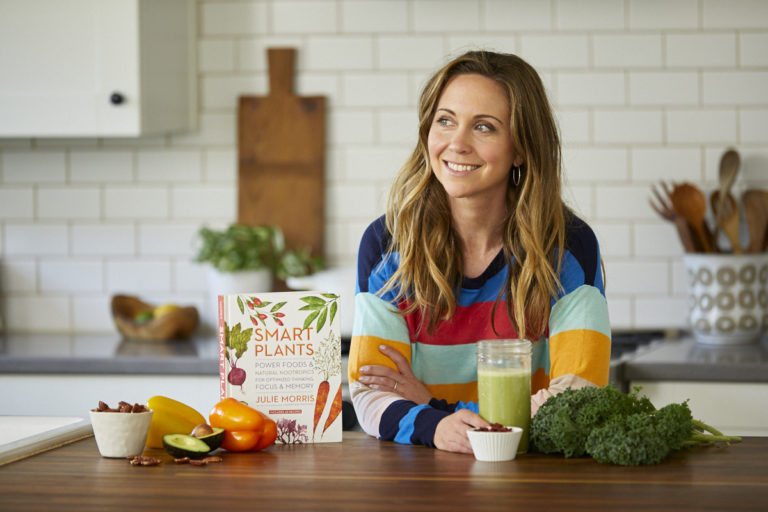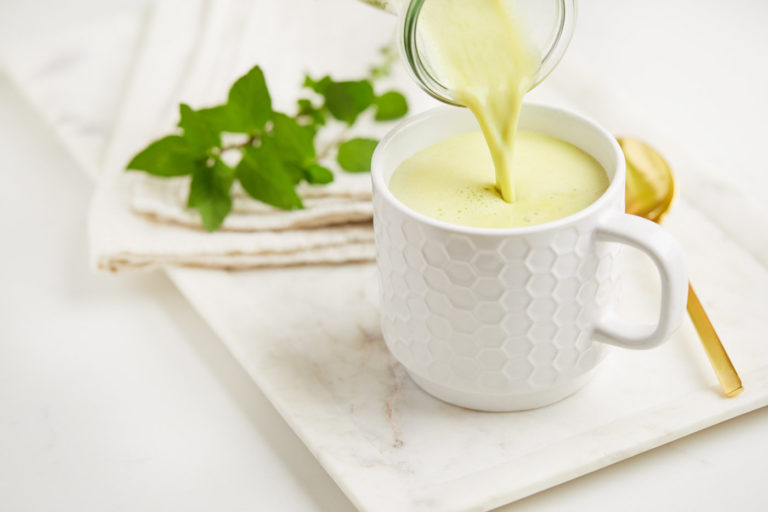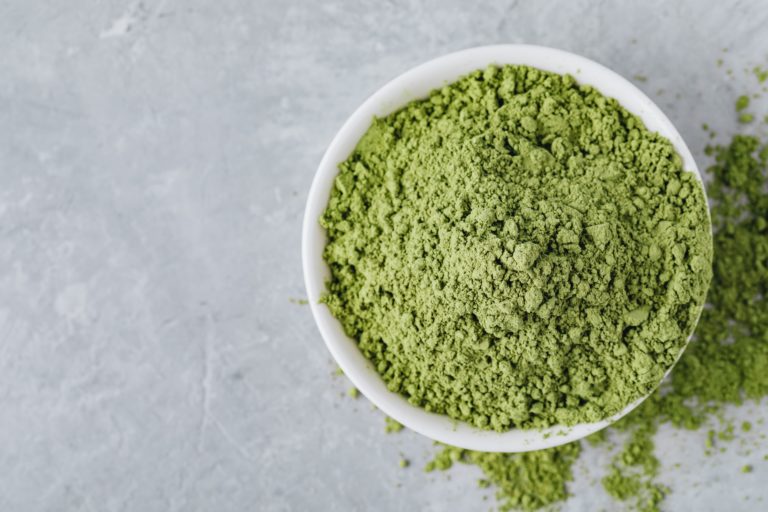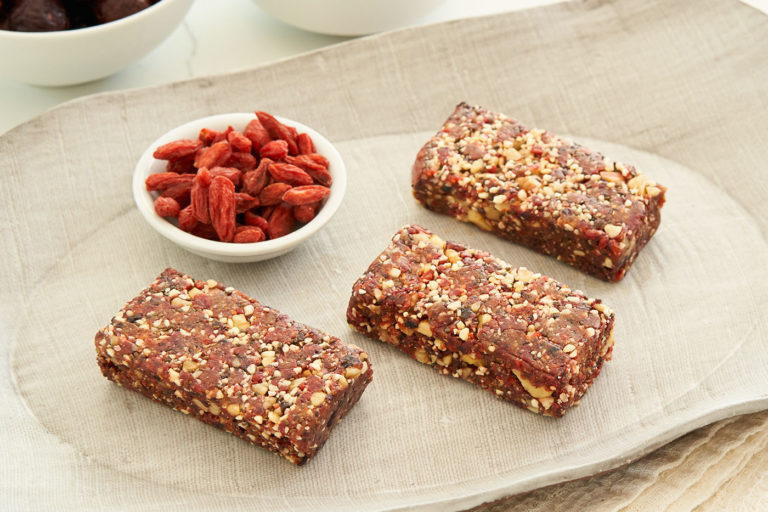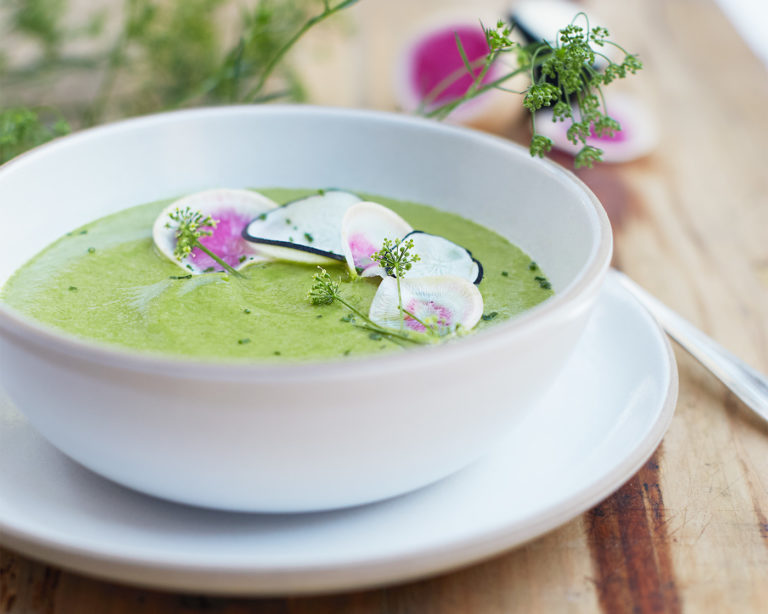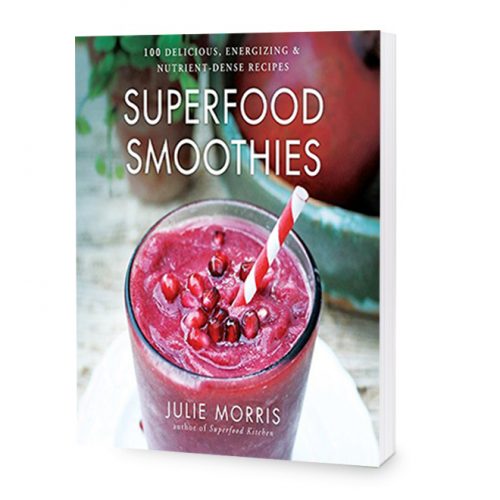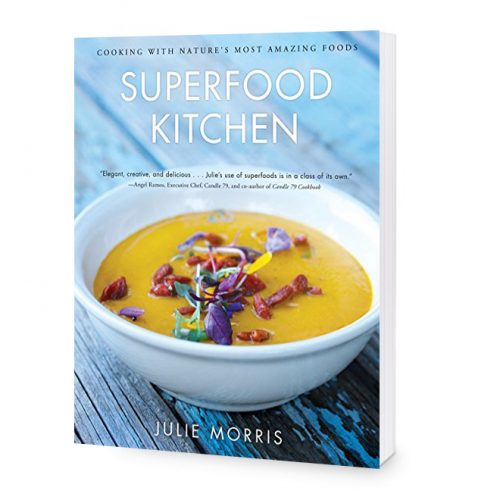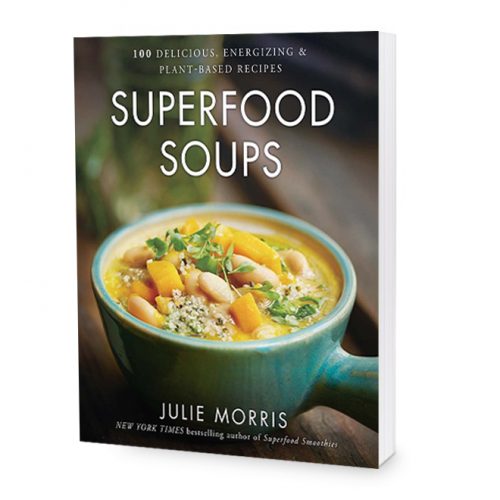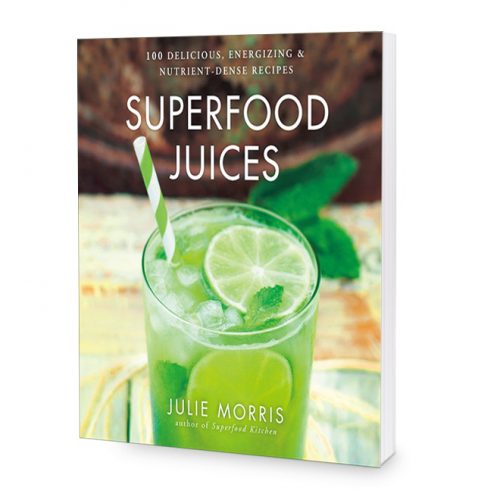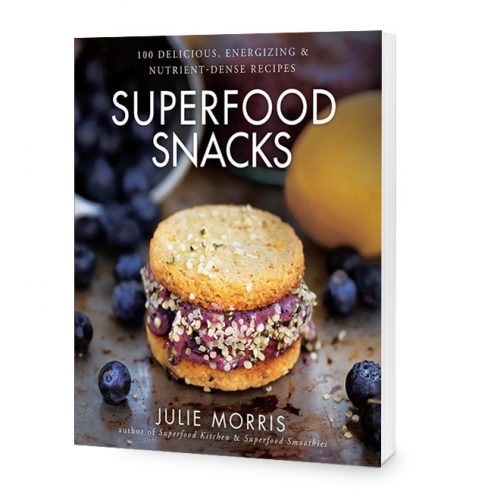Many nutritionally-minded cooks recommend soaking nuts and seeds in water — anywhere from a couple hours, on up to overnight — as a way to boost nutrient gains. But the soaking nuts phenomenon is a little more nuanced than claiming it as an “always” or “never” type of practice.
Since nuts and seeds are, in essence, the capsule of life for an entire plant or tree, it makes sense that they would contain some very powerful nutrition: amino acids, minerals, and healthy fats are among the many nutrients these ingredients boast. The health-oriented idea behind soaking is that putting raw seeds in contact with water is akin to turning on a light switch, beginning a chrysalis type of transformation from seed to plant. As these so-called embryos become alive, their nutritional makeup begins to transform as well, and mostly to our benefit. Soaked, sprouted, and even fermented raw nuts and seeds become more alkaline-forming, protein content inches up, friendly digestive enzymes are activated, vitamin levels increase (B vitamins in particular), and phytic acid levels are reduced.
Despite all these benefits, it’s the subject of phytic acid (and/or phytates, which are essentially the same thing) that usually takes over the conversation. Phytic acid is a substance present in all plant seeds, including legumes and grains, in highly variable levels that range not only between plant species, but also between individual crops (almonds for example, can contain anywhere between 0.4 – 9.4%). While phytic acid serves a purpose for the seed, helping it store phosphorus, it does the opposite when we digest it: diminishing our ability to absorb iron and zinc (and to a lesser extent, calcium), and inhibiting our digestive enzymes. Important to note is this impairment is only in effect during a singular meal, and does not last throughout the day effecting absorption of meals consumed hours later.
In general, it is widely regarded in the medical community that most healthy individuals who regularly consume a diverse, nutrient-dense diet, need not be overly concerned about phytic acid. In fact, Arthur Mullin, certified nutritionist and product specialist at Navitas Naturals, adds an additional positive spin, “The jury is still hung on whether or not phytates are good or bad. Although research is pretty clear on phytic acid’s tendency to bind with minerals such as zinc and iron, there too is a body of research that indicates phytic acid chelates other heavy metals and toxins in the body, which is a major plus.” Even so, there are a few circumstances which will most benefit from soaking nuts and seeds before consumption, from both a health as well as culinary standpoint:
- Fighting anemic conditions
- Following a non-diverse and/or highly processed vegan diet that relies very heavily on nuts and seeds
- Softening nuts/seeds for ease of blending
- Sprouting nuts/seeds for veggie sprouts and micro-greens
- Fermenting nuts/seeds for plant-based cheeses
So, the takeaway here is soaking nuts and seeds is a beneficial practice that may slightly enhance the nutrition of the food you eat (and if you’re extra ambitious, you can even dehydrate soaked nuts and seeds back into a crunchy form). Sprouting nuts and seeds is an even better practice health-wise, genuinely enhancing nutrition in addition to reducing the phytic acid (Do note that a nut/seed can only be sprouted if truly raw. Since the protective barrier inherent to the plant is broken down during this process, bacteria can easily move in, so it’s important to always rinse soaked nuts and seeds as well as sprouts.) Even roasting can help reduce the phytic acid content to some extent! Nonetheless, if you don’t have time for soaking/sprouting/fermenting/roasting, rest assured you are still enjoying many, many nutritional gains from nuts and seeds. Consider soaking to be a nutritional plus, but not a must.

